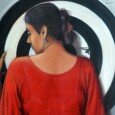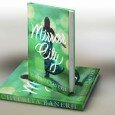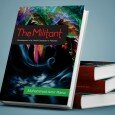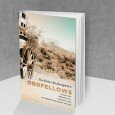By Rabia Ahmed –
SUN MERE BANDHU RAY: The Musical World of S.D Burman by Sathya Saran
Sachin Dev Burman … we know him as S.D Burman … is the singer and composer who gave us ‘jalte hain jiske liye’ and other such memorable music almost until the day he died in 1976. This is his biography, published this year by Harper Collins India. The author is Sathya Saran, an Indian journalist, herself a consulting editor for Harper Collins India. The book takes its name from another of Burman’s songs, composed and sung in 1959 by Burman himself for the movie Sujata.
Burman was born in 1906 in Comilla to a royal family of Bengal. His father wanted him to be a lawyer, but Burman dropped out of University while doing his Masters to train as a singer. He started by teaching music, composing for plays and films, and singing both classical, and songs for films.
In a decision for which it must never have stopped kicking itself, Burman and K.L Saigal were both rejected by His Master’s Voice (HMV) and were both signed on by its competitor, Hindustan Musical Products.
K.C Dey, Manna Dey’s uncle, was one of Burman’s music teachers. Saran’s description of the most important lesson Burman learnt from Dey is striking. One evening, she said, he decided to sing in the dark. He shut the doors and windows and let the dark take hold of him. He covered his eyes to ensure that no light fell upon the closed lids. Then, sitting cross legged with his tanpura, he shut his eyes and started to sing.
‘He had never sung like this before. He could feel every note vibrating in his body, swirling through his arteries and coursing through his veins, clear and separate, then welding in the other to form the raga.’ The exercise helped him understand how his teacher sang the way he did, because of course, K.C Dey was blind. ‘He gave his music what eyes could not have given it, emotion. He sang with his heart.’
Burman remembered this lesson all his life; he did give his music his heart, and his undoubted talent brought early recognition. He had a distinctive singing voice which has been described as nasal, but can also be described as ‘haunting’. It had the simple carrying quality of a fisherman’s song that floats across the water to the river bank.
Burman married his student Mira Dasgupta, herself a talented musician. Saran wonders why her singing talents were never used by her husband: ‘Was it a classic case of not seeing a gem so close to home due to creative short sightedness, or a question of market preferences?’
Burman also wrote about himself in a slim volume called Sargamer Nikhad, but the book is in Bengali, and he was a musician, not a writer. Neither, unfortunately is the author of this book. She is however a successful editor and journalist, and has received several awards for her journalism, which is how she manages to convey a certain atmosphere in this book, and does tell you all of the above and more about Burman’s life, about his family and childhood, the influences on his talent, his marriage and career. She also provides interesting details about many of the songs sung and composed by this phenomenal man, making it one of the few books a reader sings his way through.
This is Saran’s second book. She has also written a biography of Guru Dutt. When she came to write this one, she says she ‘put aside everything I had read as notes and interviews. I listened to the songs, I let myself listen to the world around me as someone who heard only the music in every sound, and the book began to take shape in my mind.’ She had decided, she said, ‘on a new approach to the narrative altogether.’
Unfortunately that approach results in a haphazard narrative that includes odd unrelated interludes, and switches narrator with little warning. The appendix however contains quotes, snippets of interviews, opinions of Burman and his music, recollections and anecdotes, all of which would have been better incorporated into the main body of the text. But never mind. You will, if you read this book, learn a fair bit about a wonderful singer, and will as mentioned before sing your way through the entire book. How often can you say that about a book? Not often at all.
The writer is journalist based in Lahore































































































